How to make the difference with Gen Z candidates and be perceived as employer of choice
Delia Barbu – Operations Excellence Manager at Gi Group Holding Romania and Aiste Gauciene – HR Manager at Gi Group Holding Baltics discuss how to make businesses more attractive for younger employee age cohorts
With the global economy going through an intense period of disruptive transformation, businesses find themselves struggling to source talent with the skills they need to ensure continued market viability and commercial success. In fact, sources like LinkedIn and the World Economic Forum (WEF) report that recruiting and hiring new candidates will increasingly become skills-focused with companies seeking immediate proof of individuals’ knowledge and potential ability to grow or skill up into new roles. Interestingly though, this reality also has to accommodate a generational shift in the labour force, where younger employees have different values and priorities and, for example, 88% of them will research and confirm values-alignment with a business’ company culture prior to accepting a new role.

“Gen Z candidates recognise the importance of acquiring diverse skills to adapt to the evolving job market and to stand out in their professional pursuits. Moreover, in the Baltics, where the tech industry is growing, this emphasis on skills resonates well with the region’s evolving economic landscape. Gen Z, often tech-savvy and information-driven, recognises that demonstrating and emphasising existing skills can provide more assurance in employability. One should bear in mind that Gen Z still represents a very young age cohort with relatively little work experience. So the assessments of their own skills could be hyperbolised or, depending on previous experience (past jobs, the pandemic years, war situations), underestimated,” explains Aiste Gauciene – HR Manager Baltics.
With younger generations, businesses’ skills search has also been heavily impacted by the aforementioned shorter period of time they have been in the workforce. Companies need to distinguish between skills and experience. In many cases, younger workers have the formal training in various skill sets required by modern businesses, they just have not always had the opportunity to test and refine those skills in practice.
In fact, Delia Barbu – Operations Excellence Manager at Gi Group Holding Romania clarifies, “Gen Z candidates are a niche group of very intelligent and creative individuals who understand perfectly what a business environment expects of them. They are highly market-oriented and are aware of their own potential. Gen Z workers are eager to develop both professionally and in terms of their personal brand. They are a very dynamic age cohort and are highly capable of learning and developing all the digital skills today’s job market demands.” Still, companies looking to hire and onboard Gen Z talent need to pay attention to how deep skills and specific process knowledge run and then determine if further training and upskilling needs to be integrated into career development programmes.

When interviewing, Gen Z candidates ask questions about flexible working hours, support mechanisms for maintaining a healthy work environment, and general company policies to support balance and workers’ physical and mental health. Increasingly, remote work opportunities is a topic that is top-of-mind for many young candidates and recruits.
On that last point mentioned by Aiste, it is clear that lifelong learning and career training are now standard considerations for younger candidates. As the job market evolves and technology rapidly advances, continuous skills refinement and adaptation are becoming essential. Employers who invest in their teams’ professional development are likely to be more attractive to Gen Z candidates. Promoting a continuous learning culture can serve as a key selling point for an employer: candidates value employers who provide opportunities for their skills development, offer mentorship programmes, and support employees in staying relevant in fast-changing work environments.
It is clear that engaging with Gen Z candidates, and eventually employees, is still a novelty for many actors in the recruitment business and in company HR departments. This age cohort is not always receptive to traditional jobs involving big amounts of manual work. They are the work from anywhere generation and they thrive in roles where things happen and evolve rapidly. This will require that more time be invested into recruitment, onboarding and career development programmes that respond to this age cohort’s fluid goals and expectations.


